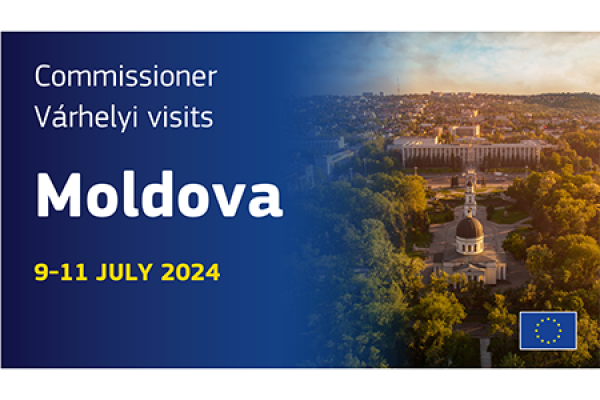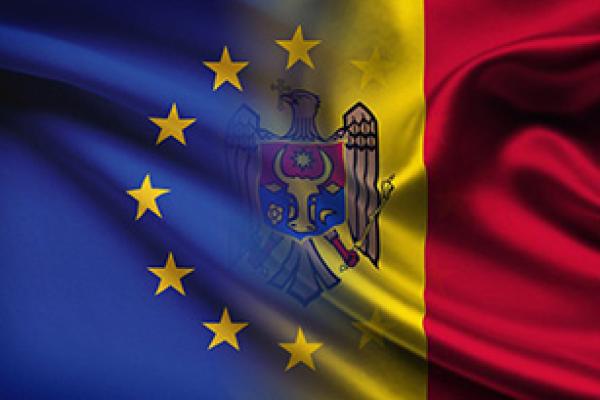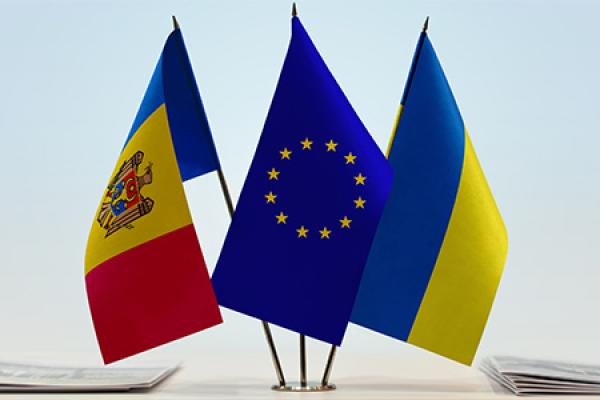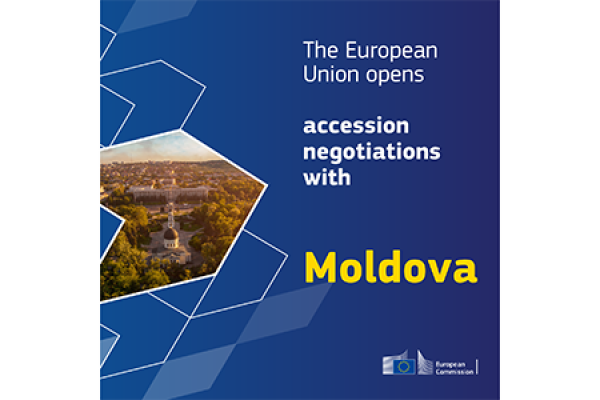Since the start of Russia's war of aggression against Ukraine, Moldova has been tackling significant challenges, including large numbers of refugees, inflation, threats to its energy supplies, violations of its airspace, as well as a multitude of hybrid actions such as disinformation and cyber-attacks.
In recognition of these challenges and Moldova’s efforts, President von der Leyen presented on 28 June 2023 a Support Package for the Republic of Moldova with five priorities aimed at addressing the impact of Russia’s war of aggression against Ukraine, and bringing Moldova closer to the European Union:
• Facilitating economic development and connectivity through the Priority Action Plan for trade under the DCFTA and the dedicated flagships of the Economic and Investment Plan (EIP). These focus on support to SMEs, trade, energy efficiency, human capital development as well as connectivity.
Moldova participates in the EU-Ukraine Solidarity Lanes initiative that helps the country ensure secure supply chains and food security. In October 2023, the EU allocated a €12 million grant to renovate the North-South rail corridor. Since 2023, Moldova has benefited from almost €45 million in grants under the Connecting Europe Facility for Transport to improve transport connections between Moldova and Romania. Building on the achievement to reduce roaming prices, the EU is working towards a long-term roaming arrangement.
• Supporting Moldova's reforms through strengthening administrative capacity, advisory services focusing on challenges arising on the enlargement path, dedicated training and support programmes as well as increasing the participation of Moldova in EU programmes. Moldova participates in Horizon Europe, Fiscalis, Customs, LIFE, EU4Health, Connecting Europe Facility, the Single Market programme, the Union Civil Protection Mechanism (UCPM) Digital Europe and the Employment and Social Innovation (EaSI).
• Ensuring Moldova's energy security through increasing domestic electricity production, participating in the EU common gas purchasing mechanism, boosting renewables and focusing on energy efficiency. With EU assistance, Moldova has made its first purchases of gas and electricity from the EU. Moldova is eligible to participate in the EU common gas purchasing mechanism.
Since December 2021, the EU has disbursed €205 million in budgetary support to help support vulnerable families and SMEs facing the rising energy costs. The actions are also aimed at supporting the long-term socio-economic recovery, energy security and energy transition.
During the 5th High-Level Energy Dialogue on 2 February 2024, Moldova and the EU endorsed a new Joint Moldova-Energy Community and European Commission Roadmap, which features next steps and a timeline of further reforms covering the gas and electricity market and to boost energy efficiency and renewable energy capacity.
• Enhancing Moldova's security through targeted actions guided by the High Level Political and Security Dialogue; expanding cooperation through the EU Partnership Mission to Moldova, the EU-Moldova Support Hub for Internal Security and Border Management, the EU Border Assistance Mission, as well as with European agencies notably Frontex, Europol, Eurojust and CEPOL; strengthening Moldova's defence sector through the European Peace Facility, and its internal security and border management through targeted investments and provision of equipment. For 2021-2024, the EU has allocated €128 million for non-lethal support through the European Peace Facility.
• Countering foreign information manipulation and interference, including disinformation, and enhancing strategic communication through providing technical support to the Moldovan government and capacity building for independent media civil society and youth to address disinformation and to communicate actively on the benefits of EU integration.
Factsheet: EU Support Package for the Republic of Moldova







